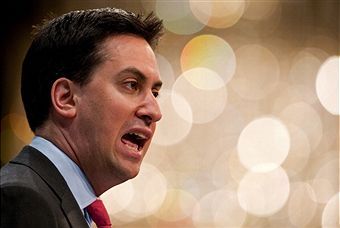 After a difficult few weeks for the Big Society, culminating in Liverpool’s
nakedly political ‘withdrawal’ from the vanguard projects, Peter Oborne has already drafted an obituary for the Conservative’s policy agenda.
After a difficult few weeks for the Big Society, culminating in Liverpool’s
nakedly political ‘withdrawal’ from the vanguard projects, Peter Oborne has already drafted an obituary for the Conservative’s policy agenda.
As Oborne says, the Big Society goes to the heart of this government’s reason for existence, and its (real or perceived) failure would damage the Conservatives. But it’s notable Labour has
yet to come up with an alternative to the Big Society, or even a substantive critique of the idea.
The problem for Miliband is that the Big Society agenda captures the centre ground of social policy – neither pro nor anti-state – and risks sidelining his party. He recognises this threat, but Ed and his ‘blue Labour’ guru Maurice Glasman have struggled to carve out a distinct, non-economic vision for the Labour Party. Miliband’s platitudes about mutualism have no traction; there’s no money, so he can’t advocate more state ‘investment’; and any genuinely innovative ideas can be co-opted by the government.
On pocketbook issues, Labour has a clear (if disingenuous) offer to the public: fewer spending cuts, more redistribution and more banker bashing. On the broader policy agenda, however, Labour lacks both new ideas and distinct messages. Insofar as it exists, the ‘good society’ appears indistinguishable from the Big Society.
Take Miliband’s recent Fabian Society speech, where he attacked top-down government “managerialism”, argued for an “empowering” rather than “intrusive” state, and talked about strengthening local, non-state institutions and communities. But for the venue, it could have been a description of the Big Society.
In effect, Miliband has been boxed in ideologically. To the right of the Big Society approach is a robustly laissez-faire view of the state-society relationship – one that sees no problem with ‘clone town’ Britain, for example – but Ed won’t seize this policy space. To the left of the Big Society, there is a potential policy agenda based on a more active, direct role for the state. This, however, could easily be portrayed as an unappealing mix of centralisation, targets and statism.
Defending the traditional, top-down government won’t win Miliband votes in 2015, but he needs to draw a meaningful contrast between the Big Society and his alternative. It will take more than
attacks on the Conservatives’ sincerity (‘fig leaf for cuts’, etc) to escape this box.






Comments